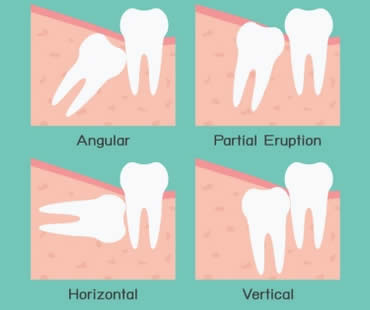
Feb 19, 2021 | Root Canal Treatment, Blog, Dental Topics 1
Millions of root canal treatments are performed every year, and it is an effective and safe way to save a damaged tooth. Unlike its reputation over the years, modern dentistry allows this procedure to be practically painless and to provide relief from symptoms right away.
Anatomy
The first thing to understand is the anatomy of the tooth. Under the hard enamel on the outside of the tooth and the dentin below that, the interior of a tooth contains pulp. It houses the nerves, blood vessels, and connective tissues that all nourish the tooth. This allows it to grow properly and contributes to good oral health. After the tooth is fully developed, the tooth can get its nourishment from surrounding tissues and the pulp is not as necessary.
Necessity
The pulp can become infected, inflamed, or damaged by problems like decay, injury, repeated dental procedures, or a bad crown. If the damaged pulp is not treated, an abscess can develop or severe pain can result. Often, root canal treatment is the only way to save the tooth instead of having to extract it. Dentists advise that saving a tooth is almost always a better option, providing the most natural appearance, efficient function, and protection of oral health.
Procedure
Many patients report that root canal treatment is not much different for them than having a regular filling done. X-rays are taken and a local anesthetic is administered. Once numb, a dental dam is placed to protect the area during the procedure. Then the pulp is removed, the area is thoroughly cleaned, and then it is filled with special material for this purpose. The tooth is sealed for protection, and finally a crown is placed on top to protect the tooth. Most patients are able to return to normal activities immediately following treatment, and the procedure is permanent in most cases.
If you need a root canal dentist in Conyers, contact our office today.

Aug 26, 2022 | Root Canal Treatment, Blog, Dental Topics 1
If you have tooth pain or another issue, you might wonder what a visit to the dentist may reveal. You may need a root canal procedure. In order to properly evaluate your issue and to confirm the need for a procedure, a dentist will examine several factors. These typically include the symptoms you are experiencing, the signs observed, and any additional testing required to confirm an initial theory.
You may have noticed:
- You experience average to severe pain that lingers, during or immediately after drinking hot liquids or food, or very cold liquids or foods.
- You have pain, swelling, or sensitivity when biting or chewing on a certain tooth.
- Your tooth pain disrupts your life, preventing you from sleeping through the night or conducting your daily business without taking an over-the-counter pain reliever.
- You have a “bubble” on your gum, similar to a pimple. When irritated, it may release blood or pus that can smell or taste bad.
- You have pain that radiates out from one tooth to other areas of your head or jaw. For example, a tooth pain can lead to a pain behind the eye like a headache or to the ear, resulting in earache symptoms.
- You have a discolored tooth that is darker than the surrounding teeth. A grey tooth can indicate a “dead” tooth.
- You have a broken or cracked tooth with obvious signs of damage or decay.
Your dentist may have noticed:
- A tooth problem revealed by x-rays
- A recurring or persistent gum pimple (also called “fistulous tracts”)
- A tooth that has changed color
Additional testing:
- X-ray examination – if x-rays did not reveal the problem, they can provide an extremely clear picture of tooth health
- Percussion testing – a gentle tapping on the teeth to evaluate pain response
- Thermal testing – a careful application of a hot or cold stimulus to evaluate sensitivity
Sometimes, teeth needing to undergo a root canal procedure have no symptoms discernible to the patient. It is important to visit your dentist regularly to ensure the proper diagnosis and treatment needed to maintain life-long oral health.
If you need root canal treatment in the Conyers area, contact our office today to schedule a consultation.

Dec 20, 2019 | Root Canal Treatment, Blog, Dental Topics 1
The goal of root canal therapy is to relieve pain, not cause it. The pain you experience before a root canal is the result of damage to the tissues in the tooth. Root canal therapy removes that damaged tissue, therefore relieving the discomfort you feel. If you are still experiencing tooth pain after undergoing a root canal procedure, it could be an indication of a problem with the treatment.
While mild discomfort is to be expected during the root canal healing process, if the pain continues or becomes more severe, it is likely an indication of a problem. There are several reasons for tooth pain after root canal treatment:
- The tooth has an extra canal that was not cleaned and filled, meaning there is an extra physical root.
- The tooth has a small, tight accessory canal that is difficult to locate on x-rays or hard to access with the necessary tools.
- The tooth is fractured due to the damage and weakened state caused by the original decay and the access cavity that is created to begin the root canal treatment.
- The root canal has become reinfected.
- The small files used by your dentist to clean out the pulp of the tooth sometimes break, resulting in a failed root canal treatment.
In the days immediately following root canal therapy, it is normal to experience some tenderness of the tooth or surrounding gum. This discomfort should be easily managed with over-the-counter painkillers and should subside in a few days. If the pain does not ease in a few days or becomes more severe, contact your dental professional immediately to access your symptoms and determine if you are having root canal complications.
We look forward to seeing you in our Conyers dental office

Apr 16, 2018 | Root Canal Treatment, Blog, Dental Topics 1
An endodontist is a dentist who has undergone additional training specializing in saving teeth through treatments that involve the pulp and root of teeth. If you have been diagnosed by your family dentist with an infected tooth that requires root canal therapy, it would be logical to seek treatment by a dental professional who is specifically trained in root canal procedures. To find a qualified endodontist for your root canal treatment, consider the following:
- Ask for a referral from your family dentist to an accredited diplomate of the American Board of Endodontics. You may also consider asking friends and family members who have undergone root canal therapy for recommendations of endodontists.
- Inquire about the extent of the endodontist’s education and training as well as the number of root canal procedures they have performed. You will want to look for a doctor with an established practice and extensive track record of root canal experience.
- Find out what type of equipment the doctor utilizes to ensure they are up-to-date on the most recent advances in endodontic therapy and dental technology.
- Ask about the sedation and pain-relief options the endodontist provides for root canal patients.
- Evaluate the endodontist and staff to determine if they make you feel comfortable, welcome, and are able and available to answer your questions.
Root canal treatment can be a stress-free and painless experience when performed by the right dental professional. Taking the time and effort to identify a qualified endodontist will help to ensure the ease and success of your procedure, and soon have you back on the road to a healthy smile.
Root canal dentist in Conyers

Mar 12, 2018 | Root Canal Treatment, Blog, Dental Topics 1
Endodontics is a dental term often linked to a more common dental procedure you’ve probably already heard of called root canal treatment. Endodontics focuses on the pulp of your tooth, which holds nerves and blood vessels supplying nutrients and oxygen to your tooth. When the pulp is infected or injured, endodontic treatment may be performed to save the tooth.
During endodontic treatment, the hollow part inside your tooth is cleaned, disinfected, and filled. It is often the best way to save a tooth that has been damaged by decay, trauma, or other causes. Common symptoms that endodontic treatment is necessary include pain, tooth sensitivity, or exposure of the pulp due to tooth fracture.
After examining your tooth and X-ray results, your dentist will recommend the kind of endodontic treatment you need based on how seriously the pulp is impacted. One type is called vital pulp therapy, which has a goal of preserving and protecting your tooth’s pulp. This procedure involves removing only the pulp from the crown of your tooth and not from the root. It is only advised when there is no swelling or abscess present, and the tooth is secure.
Another type of endodontic treatment is non-vital pulp therapy, which is known as root canal treatment. It is performed when there is no chance of saving the pulp of your tooth. The whole pulp will be removed from inside your tooth, and the canals will be cleaned and filled with a special material. Then a stainless steel crown will be placed on the tooth.
Sometimes endodontic treatment is not recommended, and the tooth needs to be extracted instead. This choice depends on factors such as tooth location, age of the tooth, extent of damage, and the patient’s overall health. Your dentist will be able to advise you on the best treatment for your condition.
If you live in the Conyers area contact us today

Jan 29, 2021 | Oral Surgery, Blog, Dental Topics 1
Wisdom teeth, your third set of molars, are named that because they are the final teeth to erupt. They usually come in between ages 17 to 25, and are located in the very back of your mouth on the top and bottom. Your dentist will examine you to find out if your wisdom teeth are properly positioned and healthy. If they aren’t, your dentist will recommend removal.
How do you know wisdom teeth should be removed?
Some of the signs there is a problem with your wisdom teeth include pain, infection, cysts, gum disease, damage to nearby teeth, and tooth decay. If you experience any of these symptoms, see your dentist for an examination.
What are impacted wisdom teeth?
Sometimes your teeth just don’t have room to grow in properly. They can erupt at angles within your jaw, sometimes even horizontally. If wisdom teeth aren’t able to erupt normally they can become trapped, or impacted, inside your jaw. Symptoms of impacted wisdom teeth are pain, infection, and swelling. When teeth are impacted, they can lead to serious problems. Many dentists want to avoid impacted teeth and therefore remove your wisdom teeth before they erupt or grow too big.
Are there less obvious reasons to remove wisdom teeth?
It’s not always clear when these teeth way in the back of your mouth are causing problems, or might in the future. Many dentists remove them in teens or young adults so they don’t cause problems later, or become too firmly planted in the jaw. Also, sometimes wisdom teeth are removed as part of orthodontic, periodontal, or restorative treatment plans.
What happens if I don’t have them removed?
Some dentists prefer to wait and see what happens with time to your wisdom teeth. Make sure you continue to have these teeth monitored, because the risk of problems doesn’t go away with age. Removing wisdom teeth isn’t always necessary, because if there’s room in your mouth and they come in properly, they work just like any other teeth. The key is to watch them to make sure problems don’t arise in the future.
Dental office for wisdom teeth removal






